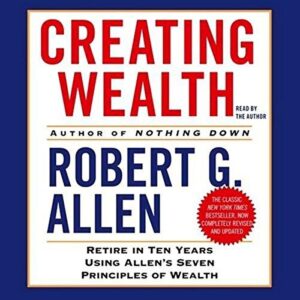About This Course
What You’ll Learn
-
The three levels of visual storytelling
-
Different ways to think about story
-
How to reflect on and choose a theme for your story
-
How to capture your experiences while on the ground
-
How to structure a story both on paper and in the edit
-
Post-production techniques for better story editing
-
How music can help you tell a better story
CHAPTER 1
What is Story?
Welcome
CHAPTER 2
The Levels of Storytelling
The Levels of Storytelling, Introduced
Everyone has to start somewhere, and in this lesson, Johnny and Nathaniel explain their storytelling framework: from simple linear stories (level 1) to artistic non-linear (level 2) to more advanced techniques (level 3).
Level 1: Linear Documentation
In this lesson, Johnny and Nathaniel critique examples of their own level 1 stories. Then, they introduce the concept of “forward motion” and explain why it’s important to good storytelling.
Level 2: Artistic Non-Linear
Discover how level 2 storytelling builds on the main principles of level 1 storytelling with additional techniques like tension and context.
Advanced: Exploring a Personal Theme
Nathaniel Drew shares how he uses a personal angle to tell strong stories. He dives into his thought process as he approaches these types of stories and how he has successfully achieved this in one of his videos.
Exploring an Issue
Johnny Harris shares how he uses his travel experiences to explore bigger issues within his stories.
CHAPTER 3
Ideation Scripting & Structure
How Do We Find Ideas?
In this lesson, Nathaniel and Johnny share how they find story ideas, from leading with their own curiosities to using music and visual anchors as sources of inspiration.
Structure Part 1: On Paper
Johnny and Nathaniel share how they use different elements to start structuring their story and reiterate how the initial structure isn’t set in stone at the pre-production phase.
Your Story Promise
Learn how Johnny and Nathaniel approach their story promises and choose the right footage to set the tone of their story.
Making a Story With Footage You Already Shot
Nathaniel shares how he uses footage he’s captured throughout his life to help illustrate the points that he’s trying to make in his stories.
CHAPTER 4
On the Ground
Being On the Ground
In this lesson, Nathaniel and Johnny share their tips on capturing visuals and being ready for the uncertainties that come with travel storytelling.
Does Gear Matter?
Johnny Harris shares the gear that he uses on trips and both he and Nathaniel Drew share their thoughts around gear and how their opinions have evolved over time.
Visual Evidence and Anchors
A strong method of storytelling is to show rather than tell. Nathaniel and Johnny give examples of how they’ve achieved this in their own work and advice on how you can too.
How to Bring Your Viewers to a Place
In this lesson, Johnny and Nathaniel present several tips to help you construct a powerful story.
Ways to Strengthen Your Story
Learn some final tips on how to make the most of being on the ground, including interviewing people and finding local experiences. The more that you discover while on location, the richer your story will be.
CHAPTER 5
Post-Production
Building a Story in Post
Discover Nathaniel Drew’s post-production process, from footage organization all the way through to creating and reviewing his edits. Nathaniel gives a demonstration of how he builds his stories in Final Cut Pro X.
Organizing Footage For Story
In this lesson, Johnny Harris opens up his Premiere Pro to give a tutorial on his process for organizing footage and optimizing his workflow as he builds out his stories.
The Power of Music Before You Start Editing
Music is a valuable way to help your audience connect with your story. Johnny and Nathaniel explore the MusicBed library and share what they look for when choosing music for their stories.
Structure Part 2: Johnny Edition
Johnny Harris shares how he creates structure in the edit, first by building out his story, then by adding any additional content, such as b roll.
Assembling Your Edit
In this lesson, Johnny shares a tutorial on how he begins to assemble his sequences and Nathaniel offers some final thoughts on everything that has been taught so far.
Conclusion
As the course comes to a close, Nathaniel and Johnny share their final thoughts on the iterative process of visual storytelling. With intention and repetition, you too can develop and grow your storytelling skills.
Sales Page:_https://www.brighttrip.com/courses/visual-storytelling




